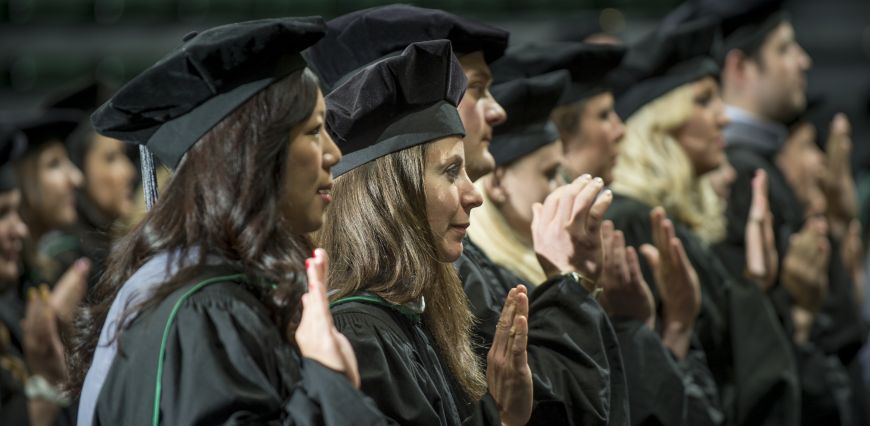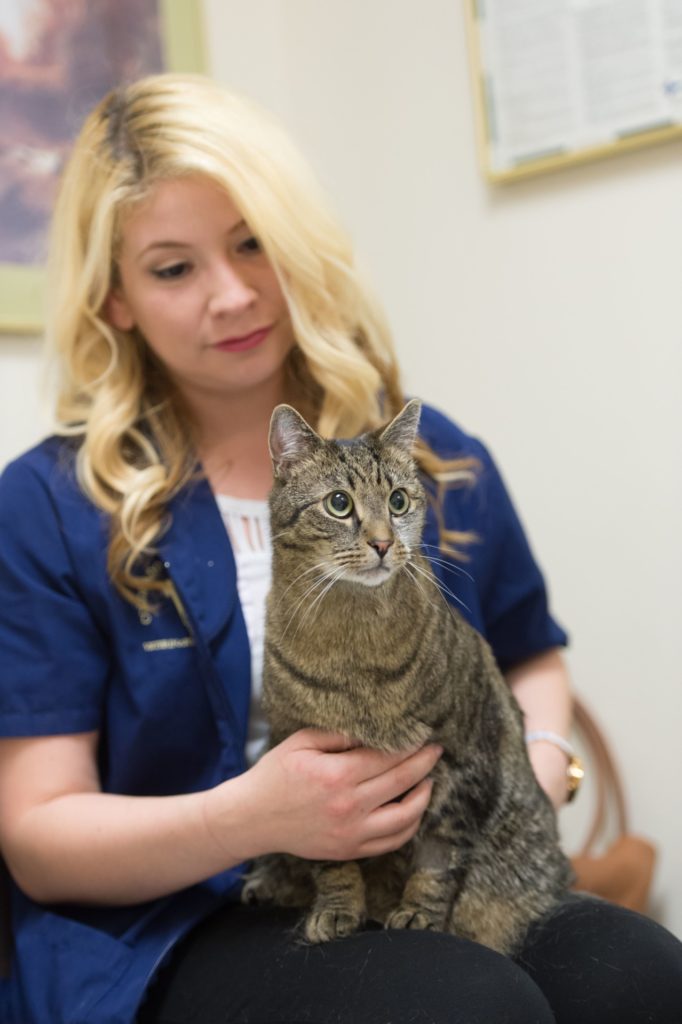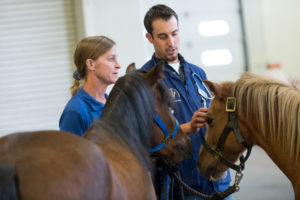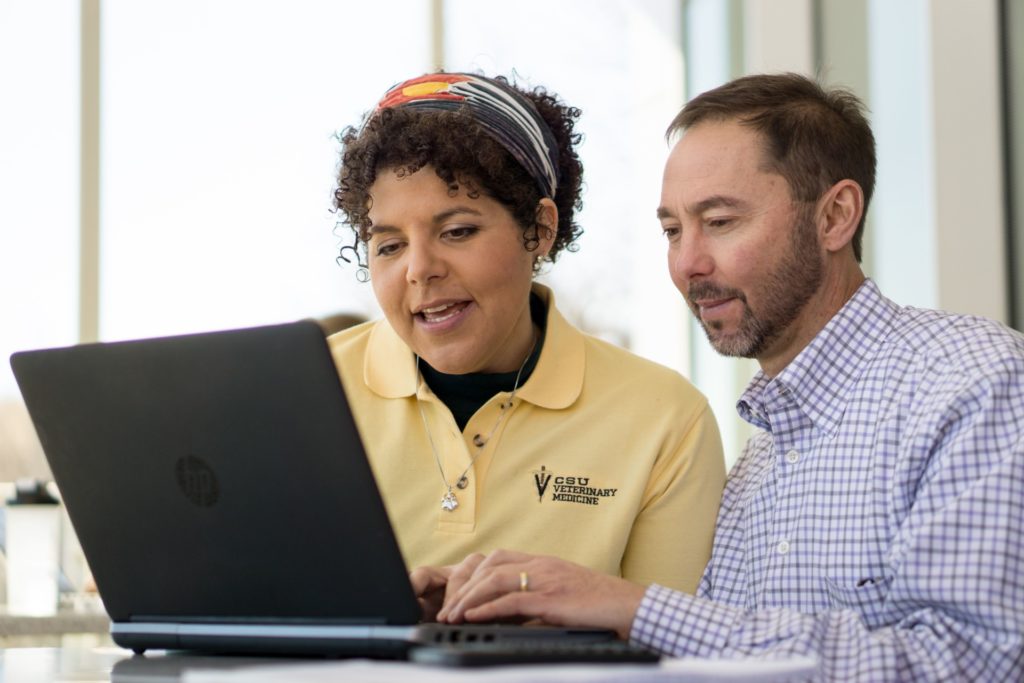
The following op-ed rebuttal was written by leaders in the CSU College of Veterinary Medicine and Biomedical Sciences in response to a letter to the editor published Aug. 1, 2016, in the Fort Collins Coloradoan. It was submitted to the paper in shortened form and is shared here for the college and campus communities.

Regarding “Vet school costs don’t match financial reward,” a letter by Harland Ranney: We appreciate Mr. Ranney’s interest in Colorado State University’s Doctor of Veterinary Medicine Program. His observations about veterinary student debt are timely – indeed, the topic is a top concern among veterinary schools nationwide – even if the figures Mr. Ranney cited were incorrect.
Before sharing key facts, we take strong exception to Mr. Ranney’s sexist assertion that women outnumber men in veterinary schools because, in his words, “[M]ale students are less likely to have a super generous parent to pick up the tab and have used a calculator to evaluate the ultimate price in money and time.”
This statement defies logic, discredits all dedicated students and families, and disparages veterinary schools working diligently for inclusion. Together, vet schools are shattering the glass ceiling by admitting talented female students in such numbers that nearly 60 percent of U.S. veterinarians are now women, a dramatic industry-wide gender shift over just a few decades. The trend also reflects the increasing number of women excelling in math and science at universities nationwide. Our DVM Program proudly resides on a land-grant campus whose core mission is providing educational opportunities for qualified and motivated students whose varied backgrounds and experiences help expand our abilities as a university, a nation, and a world. The benefits are incalculable.
We can, however, calculate debt-to-income ratios. On this, Mr. Ranney raises a fundamental point: Students are wise to consider careers that offer salaries sufficient to repay their college loans.

What does that look like for veterinary students, based on credible data? The average debt for veterinary school graduates was $141,000 in 2015, according to a report released in April by the American Veterinary Medical Association and the American Association of Veterinary Medical Colleges. The average income for new veterinarians receiving full-time employment before graduation was $69,500, according to the new report. Data for CSU veterinary graduates mirrored these averages in 2015.
Debt and salaries vary widely, yet the national debt-to-income ratio for veterinary graduates hovers at 2:1; our industry target is 1.4:1.
Burdensome debt affects many students, especially those in graduate and professional programs, such as veterinary, medical, dental, and law schools, because of additional time required for specialized training that also typically carries the promise of higher income post-graduation.
Colorado State’s DVM Program joins others in recognizing the need to reduce the burden of educational debt for veterinary students and early-career practitioners. Just four months ago, veterinary educators and industry leaders gathered for a “Fix the Debt” summit and identified specific strategies to help. These include:
- Increasing scholarship support for students;
- Streamlining veterinary curricula; and
- Working with state and federal legislators to devise new loan-repayment programs and to lower interest rates on student loans, among other policy-based solutions.

Our CSU program is notable for recently hiring a Certified Financial Planner to advise veterinary students about the critical issues of personal finances, student loans, and debt management. We are working to help students improve their debt-to-income ratios by examining financial realities with students before they enter vet school and supporting them after enrollment by instilling useful money-management skills.
This helps veterinary students manage debt, but we also need effective tools to reduce debt. Thus, our top priority during Colorado State University’s current $1 billion “State Your Purpose” campaign is raising funds for student scholarships – a goal formed specifically to alleviate student debt.
Since 1907, CSU has trained veterinarians to provide advanced and compassionate medical care for animals that enhance our lives and livelihoods – animals used for transportation and work, animals that offer protection during warfare, animals that produce food, and animals we hold dearly as family members. We have trained veterinarians to protect public health by tracking and treating infectious diseases that travel through the environment, into animal populations, and on to humans. These days, the work of veterinarians has become even more vital as innovations to improve animal health increasingly are translated into human medicine, improving the wellbeing of many species.
We urge everyone who cares about these issues to move from observation to action. Helping our talented veterinary students today could mean helping your companion animal, public health, or even your own health tomorrow.
Dr. Mark Stetter
Dean, CSU College of Veterinary Medicine and Biomedical Sciences
Dr. Melinda Frye
Associate Dean, Veterinary Academic and Student Affairs

To donate to DVM student scholarships, visit our giving page.